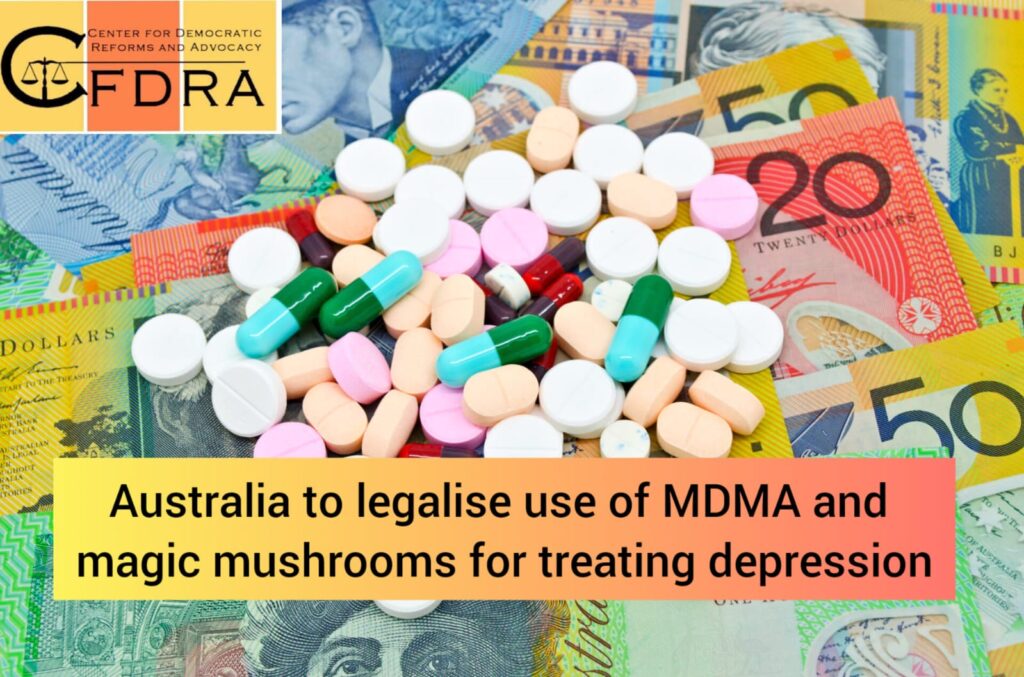
INTRODUCTION
The first nation to officially recognise MDMA and magic mushrooms as medicines is Australia. Both medications will be provided in cases of treatment-resistant mental diseases, according to the announcement made this afternoon, February 3.
Both medications will be prescribed starting in July, according to the Therapeutic Goods Administration, Australia’s drug oversight agency, which found “adequate evidence for possible benefits in select patients” in their investigation. MDMA and psilocybin will reportedly be prescribed for post-traumatic stress disorder and depression, respectively. (Although possession and recreational use of the narcotics will continue to be illegal, don’t anticipate a resurgence in the popularity of acid house or the phrase “me and you have got a particular connection pal!” on Australian streets any time soon.)
According to University of South Australia scholar Mike Musker, prescriptions will only be issued in situations “when traditional psychiatric medications have not worked and offer no comfort.” According to Musker, the two medications “lower inhibitions” and may aid patients in processing upsetting memories and imagery.
After years of antiquated and oppressive rules imposed by governments all over the world, the declaration represents a welcome step toward drug policy reform.
Reclassifying MDMA and psilocybin as controlled substances will help end the “demonization” that has
surrounded the two drugs for years, according to Dr. David Caldicott, a clinical senior lecturer in emergency medicine at Australian National University.
CONCLUSION
The medications, he continued, “may have remarkable effects on illnesses generally deemed intractable to conventional treatment,” and they may prove especially beneficial for veterans.
Naturally, not everyone was pleased with the news. We don’t have any statistics on long-term outcomes, which worries me a lot, according to Professor Susan Rossel of Swinburne’s Centre for Mental Health, who also stated that “these treatments are not sufficiently established at all for a sufficient level of broad-scale adoption.”